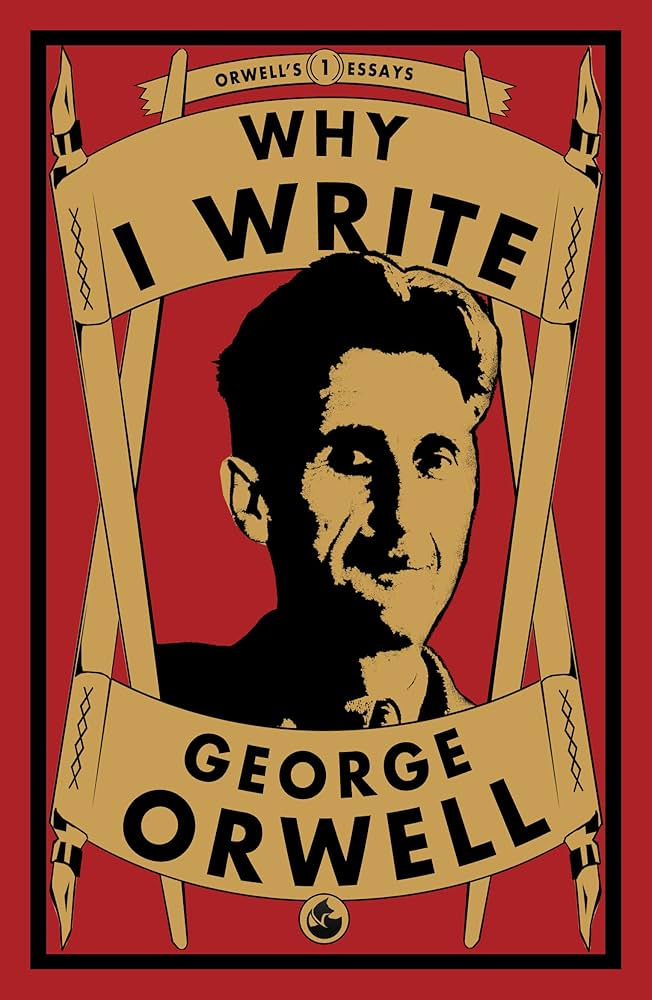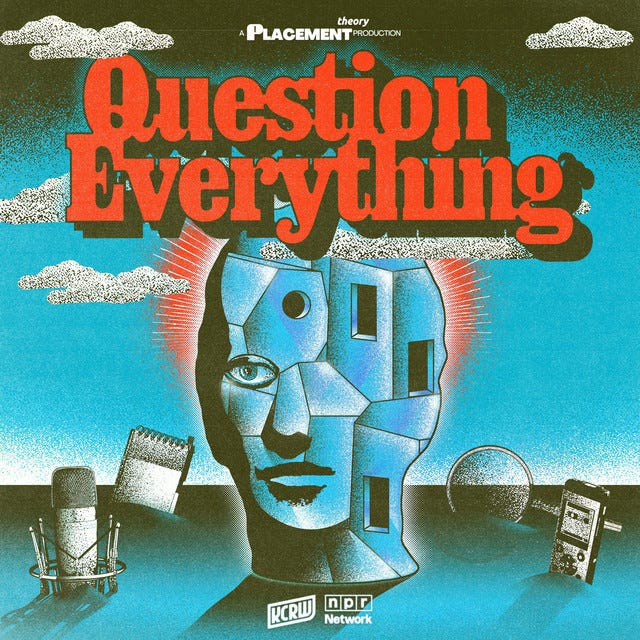why write?
on the path to creative renewal

Since my book came out, I’ve been struggling to write. I’ve been struggling to think. I’ve been struggling, period. After years in what was, more often than not, a satisfying and generative daily creative flow, post-publication, I’m finding it near impossible to place words together, to gather ideas in meaningful ways. The spigot seems immovably tight; the train derailed.
We so rarely discuss this stage of writing, the lying fallow between projects, what Keats referred to as agonie ennuyeuse (the tedious agony). Modern-day writing workshops/newsletters/retreats/X threads/Threads threads remain outcome centered, all about taking you through the steps toward a conventional creative finish line, an external notion of success: just land the perfect agent, the elusive book deal, a respectable daily word count, an insider-track marketing strategy, expertly-executed pub day and…behold! Published author dreams, unlocked.
Much like weddings, there’s a sexy accomplishment fantasy around publishing a book (and a cottage industry to support it) focused on a fairytale day and a vague happily ever after to follow. Also like weddings, we rarely discuss the “after.” Why burst the bubble? Most of us don’t relish having the realism light shone into our hope fog. We want meeting life-milestone ambitions to fix more of ourselves than they do.
I love writing books. I’ve also experienced a kind of postpartum depression after the release of both of mine. This has felt especially acute with Ambition Monster, a deeply personal work requiring a deeply personal excavation of my past, a book I toiled over for years to get right.
I’m wiped out after it, yet also acutely aware of my age, the time I may or may not have left to make things slipping away. I feel a sense of urgency that pulls toward productivity, even as I’m whisper-asking: Is writing another book even worth it?
“Why write?” is the obvious next question. I recently came across a 2022 Paris Review essay by Elisa Gabbert which aims to answer just that. In the piece, Gabbert — a poet, essayist and critic — grapples with why she herself puts words to paper. She quotes multiple authors, including Joan Didion: “I write entirely to find out what I’m thinking, what I’m looking at, what I see and what it means”; William Faulkner: “to rid myself of the dream” and David Foster Wallace: “You’re writing almost wholly to get yourself off, [but after publication] the motive of pure personal fun starts to get supplanted by the motive of being liked.” Note: Gabbert found few writers throughout history said they were in it for the money.
Maybe no writer has naval gazed more thoroughly at the “why” of writing than George Orwell, whose famous 1946 essay “Why I Write” has been fodder for English professors for decades (it’s also, reportedly, the inspiration behind Ta-Nehisi Coates’s new book, “The Message”).
In “Why I Write,” Orwell made a case for the connection between politics and language (“no book is genuinely free from political bias…The opinion that art should have nothing to do with politics is itself a political attitude”), but he also defined what he believed to be the four most common motivations for writing:
Sheer egoism (“desire to seem clever, to be talked about, to be remembered after death")
Aesthetic enthusiasm (“the pleasure in the impact of one sound on another, in the firmness of good prose or the rhythm of a good story")
Historical impulse (“desire to see things as they are, to find out true facts and store them up for the use of posterity”)
Political purpose (“desire to push the world in a certain direction, to alter other people’s idea of the kind of society that they should strive after.”)
Ultimately, Orwell concludes that without a sense of political purpose, his work was nothing but “purple passages” and “lifeless” books, but he also says this:
“Writing a book is a horrible, exhausting struggle, like a long bout of some painful illness. One would never undertake such a thing if one were not driven on by some demon whom one can neither resist or understand. For all one knows that demon is simply the same instinct that makes a baby squall for attention. And yet it is also true that one can write nothing readable unless one constantly struggles to efface one’s own personality.”
In a recent episode of the (excellent) new podcast “Question Everything,” Ira Glass weighed in on a different kind of motivation for, if not writing itself, at least storytelling. Glass re-told an anecdote about how he once convinced the reluctant subject of a famous This American Life segment to agree to share her story with the world. Upon first approach, the woman rejected the idea, asking Glass, “What do I get out of it?” After some rumination, the podcast host replied that in sharing her experience, the woman was “giving a gift that makes us feel connected, to feel like we’re like each other.” In essence, by telling her story, Glass argued, she was helping others feel less alone.
And there’s this: “When you’re going through a breakdown, a good question to ask is what is actually breaking down.” Lindsay Gibson writes in Adult Children of Emotionally Immature Parents. “We usually think it’s our self. But what’s typically happening is that our struggle to deny our emotional truth is breaking down. Emotional distress is a signal that it’s getting harder to remain emotionally unconscious. It means we’re about to discover our true selves underneath all that story business.”
It’s maybe important to note here that Keats didn’t just refer to his in-between-writing-projects time as agony, he also called it a “molting.”
For me, this summer marked the first time I wasn’t in the middle of a writing a book in nearly four years. I’m clearly uncomfortable in this liminal space, more than slightly impatient for and apprehensive of what will or won’t come next, resistant to the (inevitable) cycle of change. But, really, like in any moment of transition, what I’m afraid of is the molting, of uncovering what’s underneath the story I’ve already told. I miss that particular story, but, increasingly, I miss writing more.
Far outside of publishing and book tours, away from the trappings of accomplishment and the Instagram gaze, I do know why I write. Consistent, intentional daily writing has helped me stay moored, to find meaning in my life and a sense of purpose too. Publishing, for all it’s vulnerability- and hassle-making, connects me with other people, allows me to feel less weird and alone and more “like we’re like each other.”
Gabbert wrapped up her Paris Review essay with her own reasons for continuing this work: “Staring at my laptop screen makes me better at thinking. Even thinking about writing makes me better at thinking. And when I’m thinking well, I can sometimes write that rare, rare sentence or paragraph that feels exactly right... That rightness feels so good, like sinking an unlikely shot in pool. The ball is away and apart from you, but you feel it in your body, the knowledge of causation. Never mind luck or skill or free will, you caused that effect—you’re alive!”
And maybe it’s just that simple? Even in tedious agony, we’re still alive. The opportunity to examine our aliveness — and share that examination — is somehow, at once, the fairytale, the irresistible demon and the gift.
I start a new writing class — and, potentially, a project — this week.




If what you have just done here is not “writing” then what is it? This is writing.
I'm a prolific writer, which leads to a lot of literary slut-shaming, and not in the good post-feminist, let's-take-back-the-power-of-sluttiness way, but mucho condescension. (This has been going on forever, however; James Wolcott wrote a take-down of Joyce Carol Oates in the 1980s with a hideously misogynistic illustration.) But my writer's metabolism is simply set very, very, very high; I am a quivering greyhound of a writer who gets extremely nervous when I'm not writing. That said, when I talk to people about the writing life, I always tell them: "If you can be happy not writing, then do it. Because a writer's life is a little nose-to-the-glass, you're never really in the moment because you're too busy thinking about writing about the moment." Anyway, I write because it makes me happy, God forgive me. Narratives create order in a messy, chaotic world, they impart the illusion of control.
However, I do have fallow seasons; I don't let a new book enter my head until the old one is post-copyediting and that means weeks of not-writing. Except for Substack. And tweets. And my journal and . . . anyway, if I could put one wish out into the universe it's that's people would stop saying that I'm "cranking them out." I'm not a Playdoh Fun Factory, one of the most beautiful oxymorons ever.